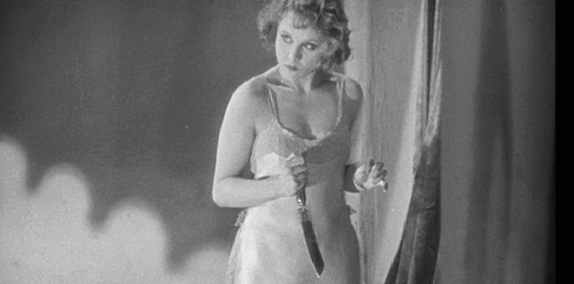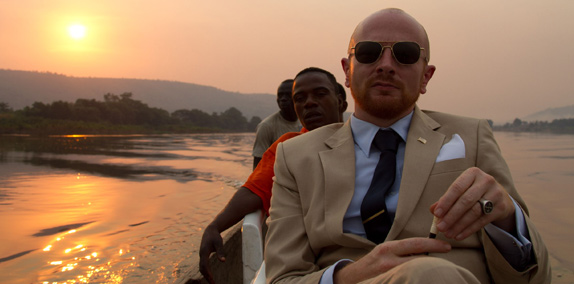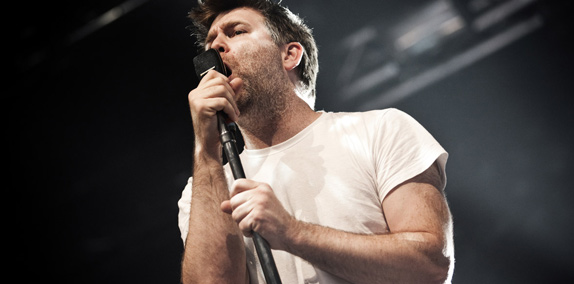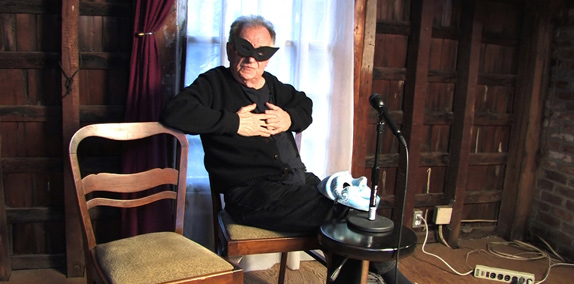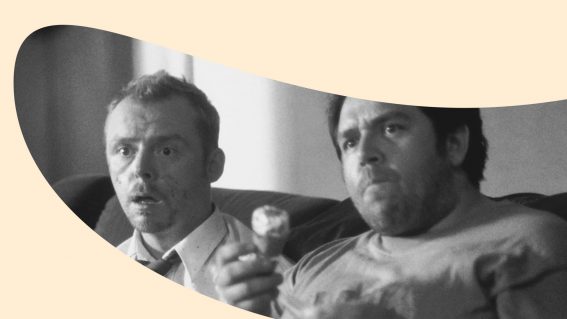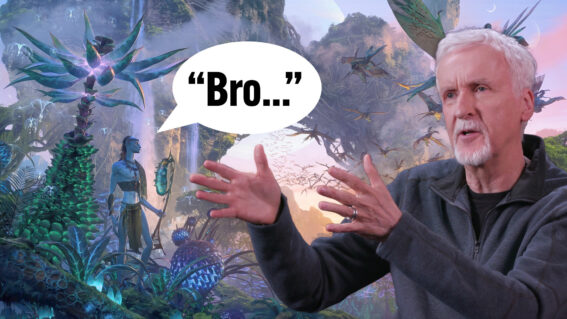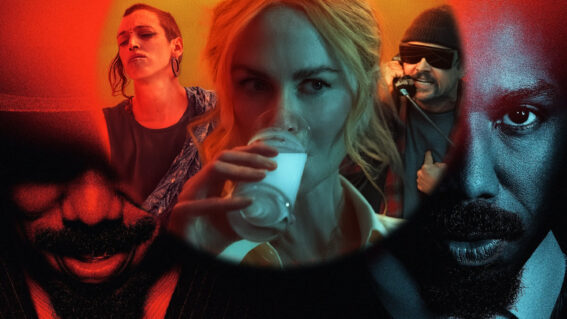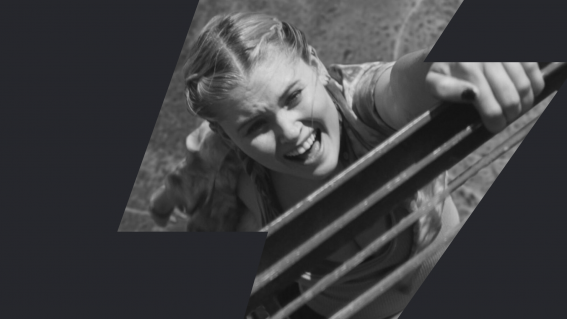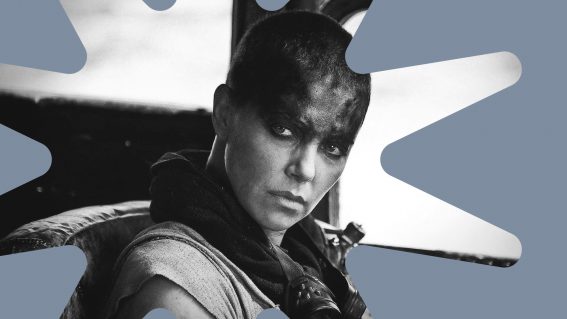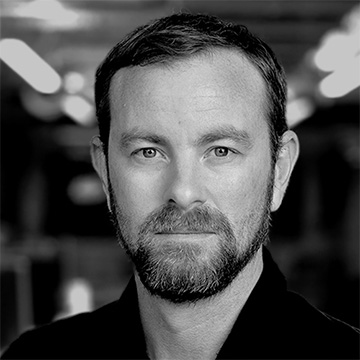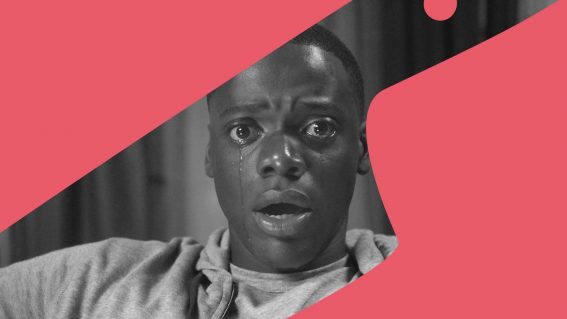Interview: NZFF Director Bill Gosden
Bill Gosden, NZ International Film Festival Director, is the tireless fellow who brings us this travelling cinematic goldmine each year. We sat down with him a couple of weeks ago, before the Festival got underway, to find out a bit more about how it comes together and what he thinks you should be looking forward […]

Bill Gosden, NZ International Film Festival Director, is the tireless fellow who brings us this travelling cinematic goldmine each year. We sat down with him a couple of weeks ago, before the Festival got underway, to find out a bit more about how it comes together and what he thinks you should be looking forward to seeing.
FLICKS: Before we get on to this year’s programme I’m quite interested in how you go about putting the festival together and, in particular, some of the difficulties you face.
GOSDEN: There was a huge challenge which was the whole tsunami of digitisation, and as recently as March the Civic (which is of course our most important venue) wasn’t going to be equipped to show DCPs and so that was looking like a potential emergency until April when the good news came through that there would be a DCP system in there and its being installed as we speak. I think its going to be fabulous, this has been a very rocky year in terms of the whole digital transformation and we’re showing films in, I think, five different digital formats. But I suspect in a year’s time it might be much more standardised and everyone will have DCP and everyone will be making DCPs.
We’re showing a lot of films on HD Cam this year, which is really just a festival medium nobody else uses it, nobody’s got the machines to play it – we’ve had to rent them in from Australia. We’ve had to install these players in various key festival venues. I think that’s been a huge challenge this year and it’s a continuing challenge too because we’ll be negotiating this new technology on a film by film basis as the festival unrolls. But at it’s best it’s going to be fabulous at the Civic and its already fabulous in a number of venues we use, for example Event Cinemas’ Queen St complex. The sound and projection in those rooms is really superb. Event Cinemas have really looked after that side of things in NZ which is good for us and good for everyone.
We thought there would be rugby widows. And there just weren’t- we were the widows!
FLICKS: I believe there are also financial challenges as well.
Yes, last year wasn’t good. We lost a lot of money in the provinces last year, Auckland Wellington and Dunedin festivals were all terrific and then we watched that money disappear with running the provincial festivals against the World Cup. We thought there would be rugby widows. And there just weren’t- we were the widows!
FLICKS: Right. What a disappointing thing to have happen.
Yeah, know it was bad – so we just cant afford to live that way and we do believe that while we have offers of great value for a sponsor who is interested in something that has a real “across the board” appeal- I think part of the difficulty for us is that there is no simple kind of niche that we occupy that can be usefully exploited by a sponsor. It is much more general and the big sponsorships we have had have been from companies that were looking for that kind of broad reach, so Telecom was the most significant one.
But, yeah we could really do with it – there is no two ways about it and I mean we try to keep up with a degree of service that people have come to expect, but you know frankly we just cannot do it – our guest register is really quite severely limited by the amount of money we have to spend in that area.
FLICKS: It is a pretty unique position that you are in, to be funded to that high proportion by ticket sales. I mean would be a sort of comparable festival be like in Melbourne or Sydney? What sort of proportion of income comes from ticket sales?
Last time I knew the statistics in Melbourne it was 40%, but that might be a bit out of date because they know that the state funding there has been pulled back. Mind you, the Australian festivals because of this interstate rivalry they all have particular programmes that are quite well-funded at state level. The Sydney film festival has this international competition. There is a $60,000 prize attached to that, and that comes from the Premier’s Department in NSW.
FLICKS: Should we be trying to foster that here a bit more?
The only way we could do it and its one of the ironies of taking the festival nationally is that we don’t really have the opportunity to feed on that kind of parochial interest or the any kind of funding that is about driving people to a specific sitting, because nobody from Wellington really needs to come to Auckland for the festival here except for the live cinema, the Auckland Philharmonia extravaganza every year.
We saw the new British Film Institute restoration and we have only the second screening in the world
FLICKS: It is a good time to start talking about some highlights, it has all been very inside baseball so far. So, Blackmail is the title for live cinema this year isn’t it?
Yes, Hitchcock’s last silent movie his 9th or maybe 10th. There is nine surviving Hitchcock silent movies, but Blackmail was the film he made as a silent movie and then he remade it with the same cast and location and crew for sound. So it was his last silent and first sound movie simultaneously. Obviously we were shown the silent version and we were shown the new score by Neil Brand who is a real ace of film composition for silent era movies and has visited NZ and performed at the festival in several locations. We saw the new British Film Institute restoration and we have only the second screening in the world.
It has taken a lot of negotiation – it is kind of funny we are seeing the fact that it is the old films that take the longest to tie down. This is definitely the case with Blackmail. But – we finally got there and it will be supported with another new brand new restoration of Charlie Chaplains Easy Street and also a live score performed by the Auckland Philharmonia Orchestra.
FLICKS: Who will be making the trip down to the festival this year?
Mads Brügger, the Danish high risk documentary film maker. In The Ambassador he has acquired diplomatic papers – there are cash poor African states that actually sell diplomatic posts to anybody with the money to pay for them – and uses that diplomatic status to try and drive his way through central Africa with small cameras present at all times.
He takes some enormous risks, I mean there are some very, very scary dudes that he brushes up against in this movie. So he will be here to give us some insight of the process of making that film.
Also Lee Hirsch, a documentary film maker who is a little bit more conventional in his approach. He has made a film called Bully which is about bullying in American schools following, I think, five case histories. The film received a lot of attention in the United States because the motion picture rating organisation there rated it so kids could not see it, on account of the “F” word apparently. That is what they have cited and there is a huge campaign to lower that rating so that kids can see the film.
FLICKS: is there anyone else in this complement of folks?
That is it so far- we have a few invitations out there [since this interview the Festival have confirmed that V/H/S director David Bruckner and Polish animation guru Maciej Jackiewicz from Platige Image will also be here – Ed.]
FLICKS: All good. Opening night looks like a cracker, as always, with Beasts of the Southern Wild. What is the process of choosing your opening night selection like?
It is a tricky one because everybody has an opinion about it! From about March people have been asking me if I’d selected the opening night film yet. Yes I can’t believe the degree of interest that focuses on it. So, it is a matter of trying to – you never want to be too caught up in your fear of opening night, I mean I always personally feel embarrassed by the safer choices that are made but then people are incredibly vocal about the less safe choices to, so yeah you just have to weather the storm sometimes.
FLICKS: Is there anything else in the program that is a specific highlight for you at this stage?
Well, I think the music program is terrific, and I think that those should be great nights at the Civic, the LCD Soundsystem film Shut Up and Play the Hits and
the McGarrigle sisters’ Sing Me the Songs That Say I Love You – not that that is at the Civic, but that’s a great concert movie.
I think there is a lot of films in the program that need to find their very particular audiences and should thrive when they do, like the documentary about Diana Vreeland, The Eye Has to Travel. That’s a very, very entertaining film, and a very smart film about fashion and a woman who said what was fashionable and what was not. She is a remarkable creature.
FLICKS: Fashion films have worked so well in the past haven’t they because with a few champions in media they really seem to get people out to them.
Yes, I think that’s true – and also films about architecture always have too. There is always that there is always a certain kind of niche media attention that feeds directly to the audience that is going to go for the architecture films. We don’t really have a prominent architect profile in the film festival this year unfortunately, but anything along
those lines has really worked for us.
We have good photography films too actually, and I think photography is an interesting aspect of the festival this year, because there are a few films that really exploit or understand the new possibilities, particularly what the RED camera can do. The Victor Kozakovsky documentary ¡Vivan las Antipodas! is a film that really makes marvelous use of HD photography, and there are amazing panoramic shots in this film where he just lets your eye wander and find the most amazing details. On the giant spread of the Civic screen or the Embassy in Wellington or the Regent that is just going to be sensational. So I would cite that as a film about photography, but we also have films about photographers.
There is the film about Bert Stern (Bert Stern, Original Madman) who was also a film maker – he made Jazz on a Summer’s Day a kind of quintessence of 50s chic, that film. He did a lot of work with Marilyn Monroe – he shot that famous shot that was used on the Lolita poster with the cheap plastic sunglasses with the hearts and the lollipop. He is an outrageous character. There is also Journal de France about Raymond Depardon, the French photographer which is a fabulous film about his life and work – a great film.






